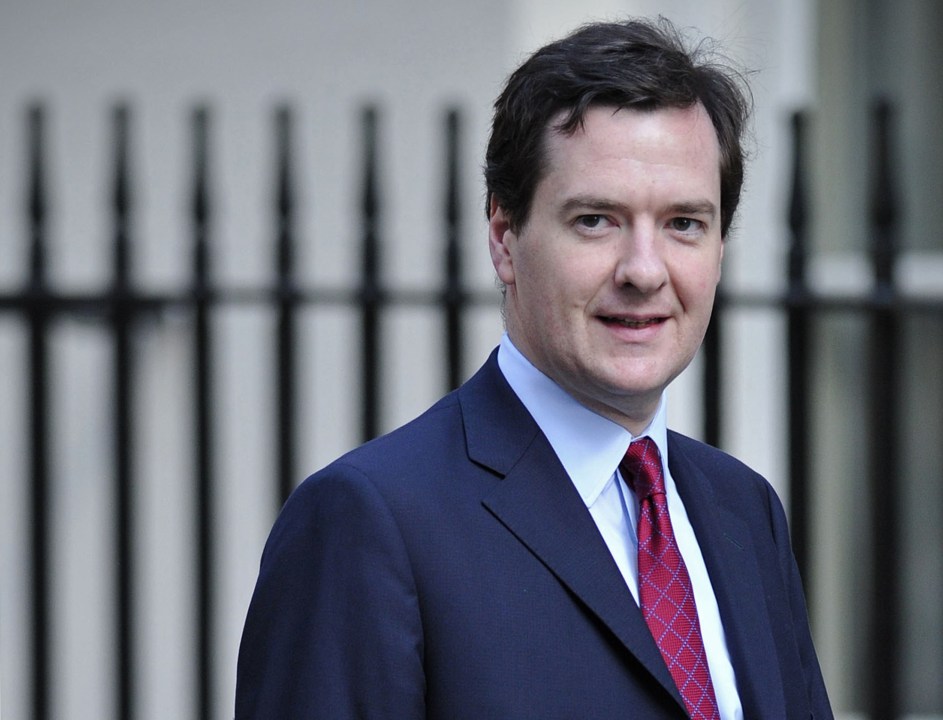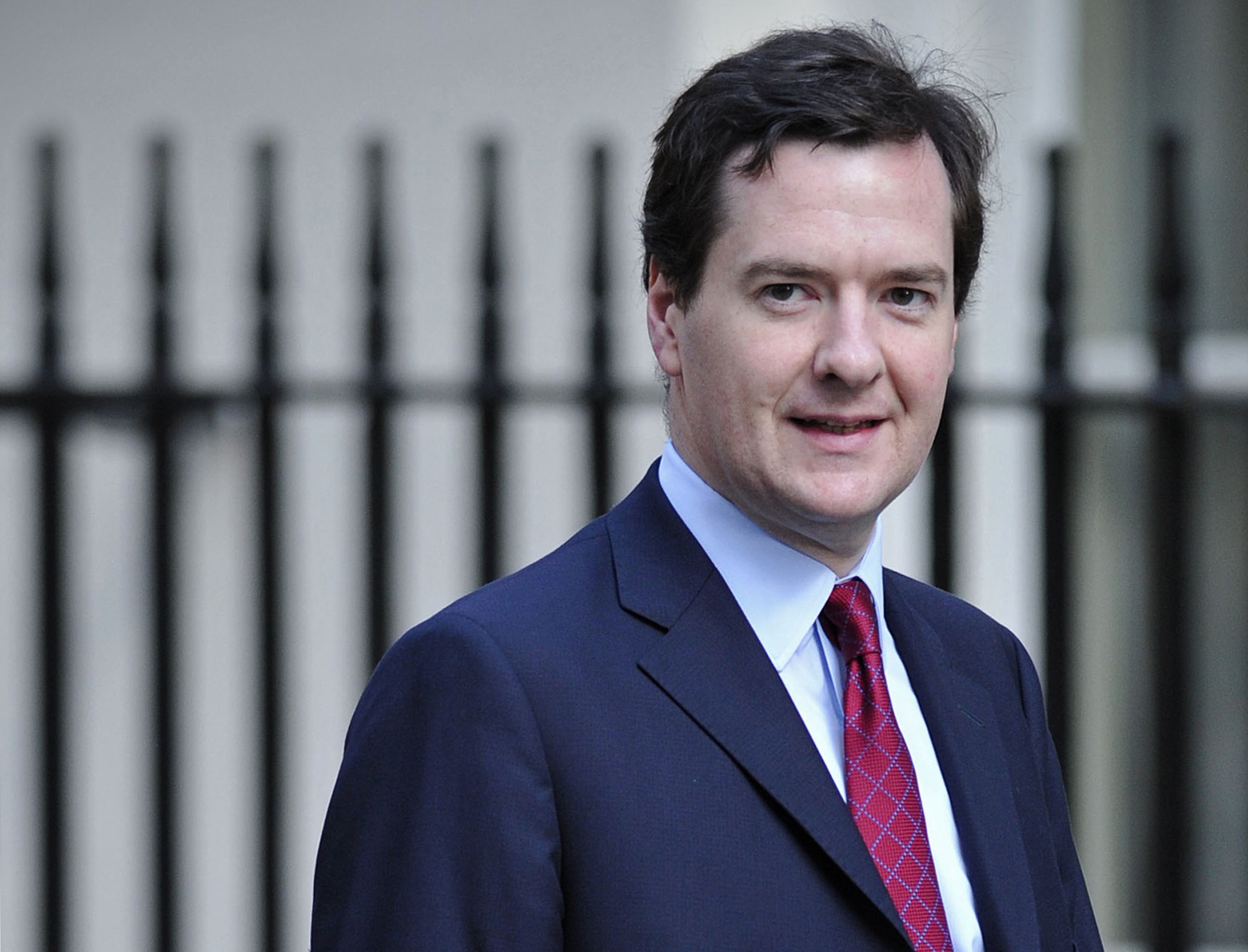 I’m quite optimistic about George Osborne’s budget – in the same sense
that one might have been optimistic when Churchill took over from Chamberlain. Not because the situation is good, or because you think the road ahead will be easy or enjoyable, but because the road
no longer leads to disaster. Not that Osborne is a Churchill – even though he will have his own fair share of blood, sweat toil and tears for us on Tuesday. I’m pretty confident
he’ll head in the right direction, and at the right speed. I discuss this in my News of the World column today, but will say a little more here:
I’m quite optimistic about George Osborne’s budget – in the same sense
that one might have been optimistic when Churchill took over from Chamberlain. Not because the situation is good, or because you think the road ahead will be easy or enjoyable, but because the road
no longer leads to disaster. Not that Osborne is a Churchill – even though he will have his own fair share of blood, sweat toil and tears for us on Tuesday. I’m pretty confident
he’ll head in the right direction, and at the right speed. I discuss this in my News of the World column today, but will say a little more here:
1. This Budget will probably mark the point when the UK started to recover. For two months now, the economic data has been favourable. House prices are up 10% so far, predicted to rise another 10%. Money supply is growing at about 6.6 percent: credit is flowing. The OBR’s favourable predictions I wrote about last week. VAT is up 25 percent year-on-year, twice the forecast. Sterling is recovering. A CoffeeHouser, “Short the UK”, has recently changed his name to “Long the UK” and he has a point. Time to put your pension money back into sterling. As I argued in The Telegraph the other day, something is going badly right. I will win myself no friends in the Treasury for pointing it out, but the facts do not support the “worse than we thought” narrative. As Matthew Parris said yesterday, it is time to cut as a matter of choice, not necessity. Now, this could be a mini-bubble. Or it could be the beginning of a sustained recovery. If so, it will be dated back to Osborne’s Budget. This is the new Year Zero and 22 June is the new Day One. Osborne will, like Brown, be able to lay claim to many trends that he did not father. But, as Brown showed, the Chancellor can spin any narrative he likes because standards of scrutiny are not all that.
2. Osborne faces a political vacuum – is he really afraid of Harriet Harman or Dianne Abbot? Danny Alexander announced £billions of cuts the other day, and no one cared. Labour is not opposing right now – never again will Osborne have such a free hit. He should take it, do what financiers call a kitchen sink job, and spend the rest of his time in No.11 being pleasantly surprised. He is still, now, stressing the 80/20 mix of the cuts to tax rises, when even City analysts expect him to cave and do 50/50. I have a feeling that he’s going to hold firm.
3. Osborne can start to set the terms of debate. There was an extraordinary line in the FT yesterday about “additional spending cuts or tax increases of £34bn a year, on top of the £51bn already being planned. The average family would be £1,000 a year worse off”. Fiscal tightening does not make a family worse off. In fact, if Osborne cuts by £70bn and there are 26m households, this would make the average household £2,700 better-off – either in tax they won’t have to pay, or debt they won’t have to suffer. The below graph is just one way you can describe government spending:

Look at the increase, per household, of the costs of government – one of the fastest-rising costs that families face. Osborne can say so. He’s doing something about it. And if state
spending can double, without standards improving, should they really be hit so badly by a 10 percent cut in spending?
4. The UK state spending rise in unprecedented. According to the OECD’s figures released last month (table 25), over the last decade UK state spending shot from 37 percent of GDP to 53 percent of GDP. Compare that
to the USA and the Eurozone, both of which have had their problems…

And look at how far Britain jumped: 16 percent of GDP. No other country in the world expanded its government by this amount – over the last decade or any other. I have dipped into the fiscal history books and the only country to have grown its state faster, over a ten-year period, is Germany in the 1930s – and they had a reason. Britain just had Brown. By cutting now, Osborne would simply be correcting an unfunded surge in state spending that has only ever been matched in history by a man whose name we don’t use in internet forums.
It is futile to talk about an “ideological” commitment to reducing the state per se. The question is whether state spending in the UK should be closer to 37 percent of GDP where it was a decade ago, of 53 percent now. And this is down to how much of a man’s salary the state should spend for him: 53 percent or 37 percent? Even John Rentoul would blanche at the former figure.
5. Osborne can start to use different language.
a. Every billion quid of cuts makes the average household £38 a year better-off. This rule of thumb can link cuts to lifting pressure from households – because debt is deferred tax. The Tories have to make debt real (something they failed to do in opposition).
b. Any new tax should be called a “debt levy” – linking it to the extra debt interest the government has to pay.
c. The idea that cuts kill jobs should also be addressed. Lower government spending means less confiscated from the real economy – which means more money to spend shifting real jobs.
d. That the ‘employers part’ of NIC is also borne by the employee. Cameron won the ‘jobs tax’ debate during the campaign, so he should hammer home that there is no such thing as a company tax. Companies can’t pay taxes: only people can. So money taken from companies is paid by lower wages to staff or higher prices.
6. Osborne can point to the endgame. He might even announce a shelf life to the 50p tax, if HM Treasury has pointed out to him that it will not raise any money. He’ll bill this as a five-year plan, aimed at a pre-election giveaway.
This Budget is Osborne’s second chance. As election co-ordinator he failed to furnish the party with a hard economic message (or any real message) during the campaign. Like Fabio Capello, he co-ordinated a side that should have won easily but didn’t. His problem was feeling intellectually penned in by Gordon Brown (“If we say X, Brown will say Y,” ran the logic). This is Fear of What Gordon Brown Might Say – a disease which intellectually stymied the Conservative Party for a decade and probably cost it election victory. But Osborne will learn from this, and try to set the debate now.
Osborne is a much-underestimated man. This helps him. I think he has tremendous opportunity to set momentum, like he did in his flashes of pure, lethal genius at party conferences (remember the inheritance tax cut, the policy that stopped an election?). So I’m looking forward to the budget on Tuesday, and think it may well remembered as the point that Britain turned itself around.








Comments